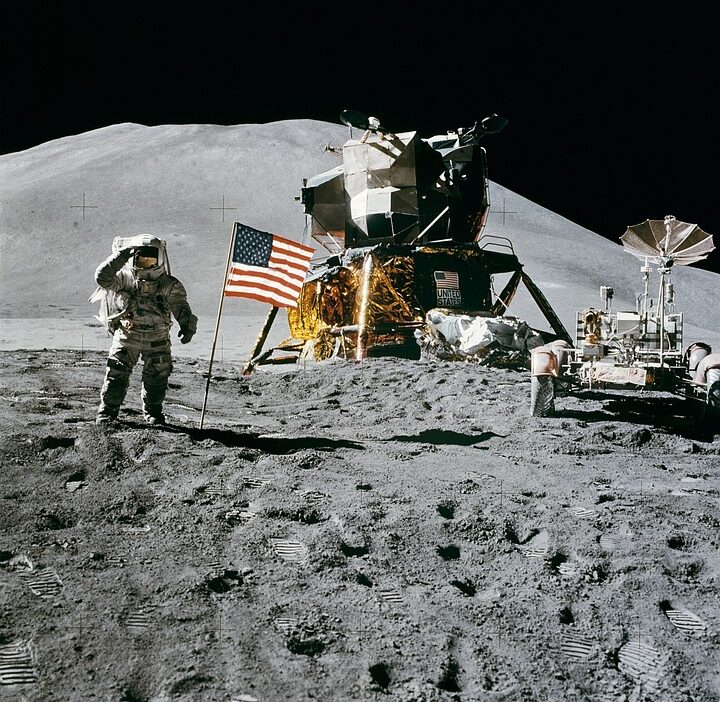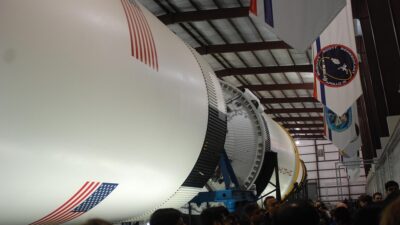Introduction
As humanity pushes the boundaries of space exploration, the intersection of quantum technology and space research is emerging as a transformative force. Quantum technology promises to revolutionize areas such as communication, navigation, and computing, opening new frontiers in our understanding of the universe. This article delves into the potential of quantum technology in space, its current applications, and the challenges that lie ahead.
The Basics of Quantum Technology
At the heart of quantum technology are the principles of quantum mechanics, which describe the behavior of matter and energy at the smallest scales. Key concepts include:
- Quantum Entanglement: A phenomenon where the quantum states of two or more particles become interlinked, regardless of the distance separating them.
- Superposition: The ability of a quantum system to be in multiple states simultaneously until it is measured.
- Quantum Computing: Utilizing qubits (quantum bits) that can represent and process information in ways classical bits cannot achieve.
These principles can drastically enhance various technologies, particularly in fields where information and precision are paramount.
Applications of Quantum Technology in Space
1. Quantum Communication
One of the most promising applications of quantum technology in space is quantum communication. Leveraging quantum entanglement allows for the creation of secure communication channels that are theoretically immune to eavesdropping. Quantum Key Distribution (QKD) can ensure that data transmitted between spacecraft or between Earth and satellites remains unhackable.
Recent experiments, such as those conducted on the Chinese satellite Micius, demonstrated the feasibility of satellite-based quantum communication over vast distances. This capability can significantly enhance data security in space exploration missions and protect sensitive information from potential threats.
2. Quantum Sensors
Quantum sensors offer unprecedented sensitivity, making them incredibly valuable for navigation and exploration in space. For instance, quantum gravimeters can measure minute changes in gravitational fields, revealing underlying geological structures on celestial bodies.
These sensors can assist in mission planning by identifying resources or potential hazards on planets or moons, thus enhancing our ability to explore and possibly colonize new worlds.
3. Quantum Computing for Data Processing
Space missions generate vast amounts of data, from images of distant galaxies to environmental readings from planets. Quantum computers can process this data exponentially faster than classical computers, enabling real-time analysis and quicker decision-making.
Implementing quantum computing in spacecraft can enhance onboard data processing capabilities, leading to more efficient missions and improved scientific outcomes.
Challenges Ahead
While the potential of quantum technology in space is immense, several challenges must be addressed:
-
Decoherence: Maintaining quantum states in the harsh space environment is difficult. Quantum entanglement can suffer from disturbances, which may compromise communication links and sensor accuracy.
-
Technological Readiness: Many of the quantum technologies discussed are still in experimental phases on Earth. Adapting them for space applications presents unique engineering challenges.
-
Cost and Logistics: Developing, launching, and maintaining quantum technology systems in space will require significant investment. Securing funding and overcoming logistical hurdles will be essential for progress.
- Regulatory Frameworks: As quantum technologies become integral to space operations, establishing an international framework for their use and protecting intellectual property will be crucial.
Conclusion
Quantum technology represents a new frontier in space exploration, potentially reshaping how we communicate, navigate, and process data in the cosmos. As we continue to unlock the mysteries of the universe, integrating quantum advancements into our space missions may very well be the key to propelling humanity into a new era of exploration.
With ongoing research and collaboration between scientists, engineers, and policymakers, the dream of using quantum technology to propel us beyond our earthly bounds is gradually becoming a reality. The future of our ventures into the unknown is undoubtedly intertwined with the quantum realms, promising exciting discoveries and innovations yet to come.

